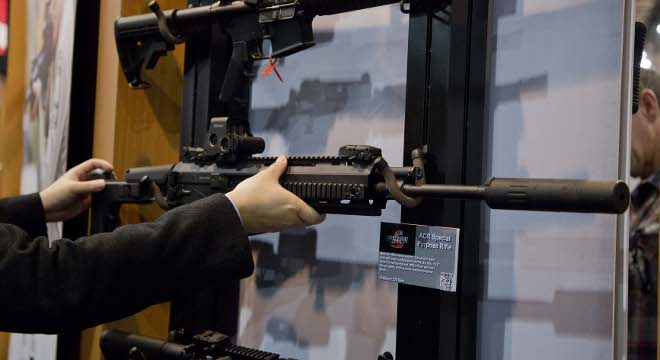Much of the talk about the Senate’s gun compromise in recent days has been about how it could strengthen laws to keep firearms out of the hands of criminals. But if some conservatives get their way, the bill could end up being a vehicle to weaken the nation’s gun laws.
Gun control amendments to expand background checks, ban military-style assault weapons and limit high-capacity ammunition clips have been promised votes, although the latter two are widely expected to fail. Senate leaders are negotiating which other amendments will receive votes, all of them likely on 60-vote thresholds. But conservative senators are pushing for various amendments that would include language to expand gun rights.
Here are the top three.
1) Concealed Carry Across State Lines
The most sweeping of pro-gun amendments expected to come up is a guarantee that an individual who obtains a concealed carry permit in one state may legally carry his or her weapon in all other states. That “national reciprocity” provision is championed by the National Rifle Association and reintroduced last year by Sen. John Thune (R-SD).
“Congress should recognize that the right to self-defense does not end at state lines,” said NRA’s top lobbyist, Chris W. Cox.
The measure received 58 Senate votes in 2009. Gun control advocates fear that if it passes, it may poison and scuttle the entire legislation. Sen. Chuck Schumer (D-NY) called the measure “pernicious,” warning that it would undermine gun laws across states.
“Somebody could come from Wyoming to the big cities of New York or New Haven or Bridgeport and carry a concealed weapon, which is so against our way of life, and the needs here in New York,” Schumer said, according to the Washington Post.
2) Loosening Restrictions On Interstate Gun Sales
Tucked inside the Manchin-Toomey proposal to expand mandatory background checks to gun shows and Internet sales, which is expected to be voted on this week, is language that makes it easier for gun dealers to market and sell their firearms in other states.
Current law lets licensed gun dealers conduct temporary business only “in the State which is specified on the license.” The Manchin-Toomey bill eliminates that restriction. The new language would permit “the sale, transfer, delivery, or other disposition of a firearm or ammunition” by a licensed dealer “at any location in any State.”
Jim Jacobs, a professor of law and gun control expert at New York University, called the provision “a modest loosening up of the restriction [on interstate sales], perhaps to make the whole bill more palatable to gun rights proponents.”
3) Restoring Rights For Recovered Mentally Ill People
Legislation introduced by Sens. Lindsey Graham (R-SC), Jeff Flake (R-AZ), Mark Begich (D-AK) and Mark Pryor (D-AR) — and championed by the NRA — would reform the mental health databases and clarify who can and cannot qualify for obtaining a firearm. Gun rights would be denied to currently ill people but protected for those who are deemed to have recovered.
The bill restores the right to buy and own a gun for people who are in a psychiatric hospital for observation, those who have voluntarily committed themselves, and those who have been “fully released or discharged” and found to no longer be mentally ill.
Upon voting last Thursday to begin debate on the bill, Graham said he hopes to offer his measure as an amendment. “My legislation,” the Republican senator said in a statement, “would make a real difference in keeping guns out of the wrong hands.”






